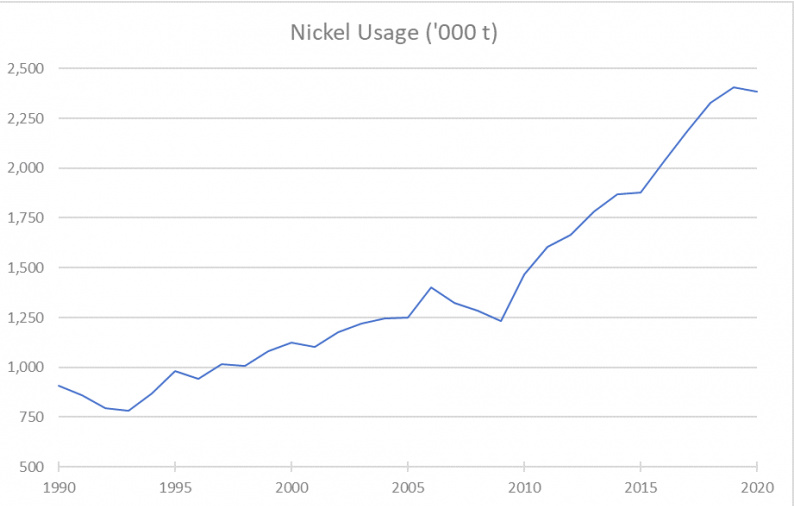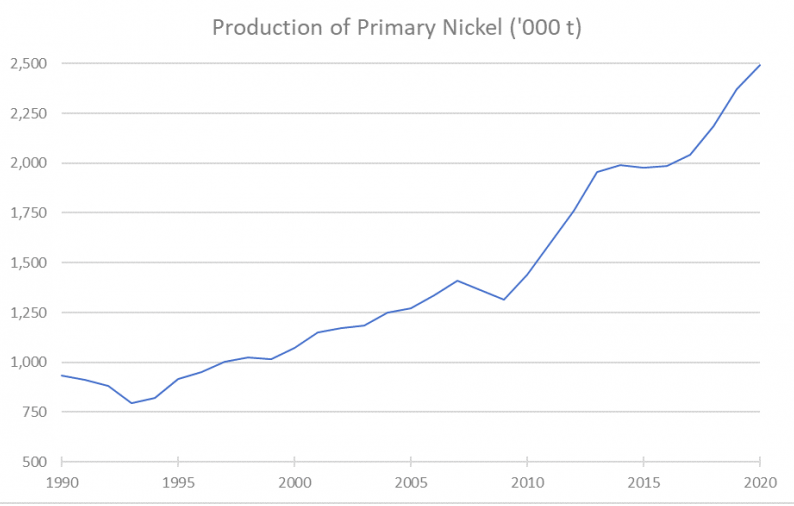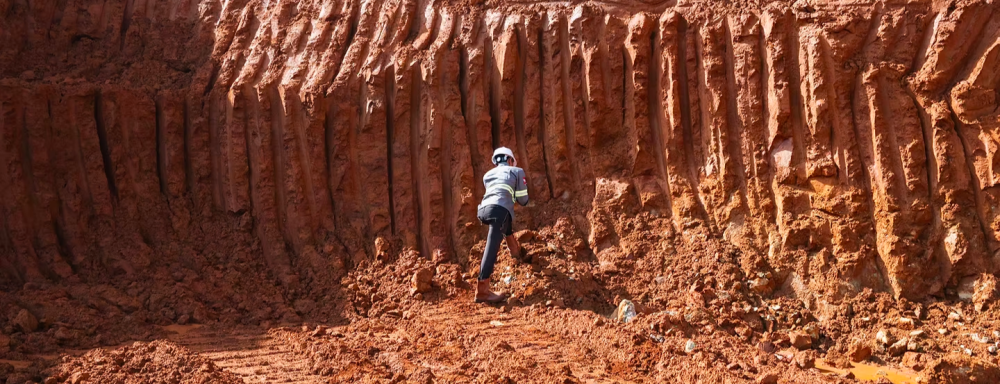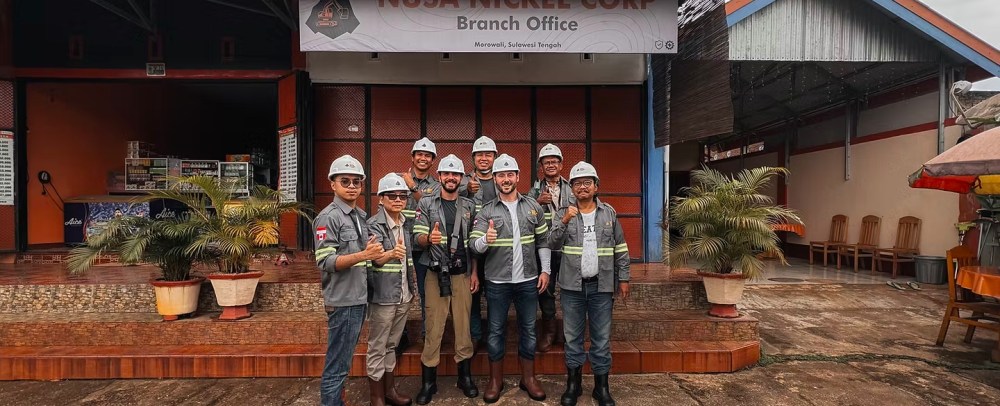Nickel isn’t just another base metal—it’s one of the building blocks of modern industry. Traditionally, about 70% of global nickel demand has come from stainless steel production, but the metal’s role has expanded dramatically. Nickel is now a key ingredient in electric vehicle (EV) batteries, renewable energy infrastructure, aerospace alloys, defense technologies, and even consumer electronics. In short, nickel is essential for the transition to a low-carbon, electrified global economy.
Global Numbers
- Global production (2023): ~3.27 million tonnes of nickel mined worldwide.
- Top producers: Indonesia (>50% of global output), the Philippines, Russia, New Caledonia, and Canada.
- Reserves: Indonesia holds the largest nickel reserves, followed by Australia and Brazil.
- Demand outlook: The International Energy Agency (IEA) reports strong growth in nickel demand for clean‑energy technologies and expects continued increases through the 2030s, driven by EVs and grid-scale storage.
- Supply risks: Grades are declining at many existing operations, and environmental and permitting challenges are slowing new projects.

Big Players & Investments
- BHP Group (Australia): Operates Nickel West, a vertically integrated business supplying stainless steel and EV markets.
- Vale S.A. (Brazil): One of the world’s largest nickel producers with operations in Canada, Indonesia, and Brazil.
- Nornickel (Russia): Among the world’s largest nickel producers; reported ~210,000 tonnes of nickel production in 2023.
- Tsingshan (China): The world’s biggest stainless steel and nickel pig iron (NPI) producer; a leading investor/operator in Indonesia’s Morowali and Weda Bay industrial parks.
These firms are pouring billions into maintaining and expanding production, reflecting long-term confidence in nickel’s role in electrification.

The Indonesia Factor
Indonesia has become the epicenter of global nickel production, accounting for more than half of supply—about 2.0 million tonnes (nickel content) in 2023. The government banned raw ore exports in 2020, forcing companies to invest in domestic smelting and refining; officials expected around 30 nickel smelters to be operational by 2024, with additional projects in various stages of development. This policy shift has attracted tens of billions in foreign investment from China, Korea, and the West, turning Indonesia into a global nickel refining hub and a critical node in the EV battery supply chain.

A Junior to Watch: Nusa Nickel
For investors looking for early-stage exposure, Nusa Nickel is worth putting on the radar. Unlike many juniors still chasing permits and financing, Nusa is already revenue-generating from its lateritic nickel operations in Central Sulawesi, Indonesia. Key facts:
- Began producing within 12 months of inception.
- Launched with a modest $1.1M raise at a $1.65M valuation.
- Now self-funded by revenue.
- Strategic advantage: 14 smelters within 170 km and a jetty only 10 km away.
- Moving into nickel trading, allowing it to source ore and sell directly to smelters, plus trade intermediate products like NPI, Ferronickel, Matte, and MHP.

Bottom Line
Nickel’s importance will only grow as the world accelerates toward EVs, renewable energy, and advanced technologies. Big players like BHP and Vale dominate the space, but early-stage companies like Nusa Nickel—already producing and trading in Indonesia, the world’s nickel powerhouse—offer investors a unique small-cap angle on one of the most critical metals of the 21st century.
Marc has been involved in the Stock Market Media Industry for the last +5 years. After obtaining a college degree in engineering in France, he moved to Canada, where he created Money,eh?, a personal finance website.

